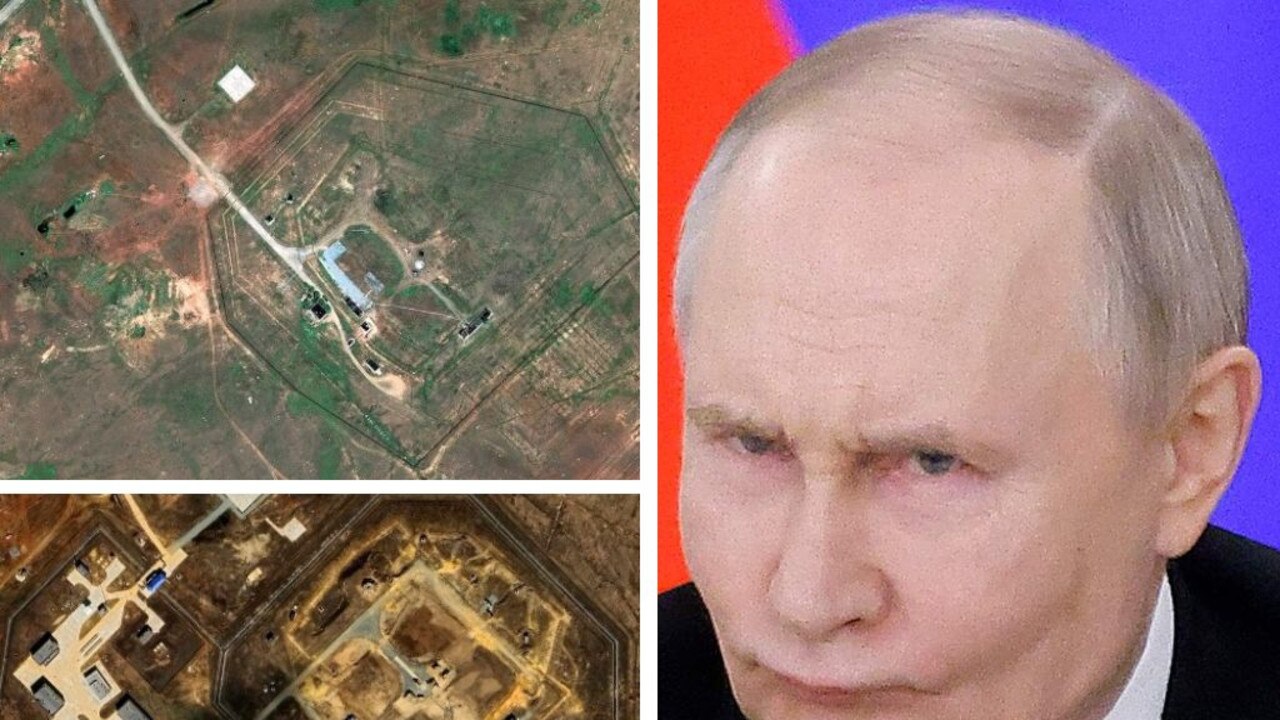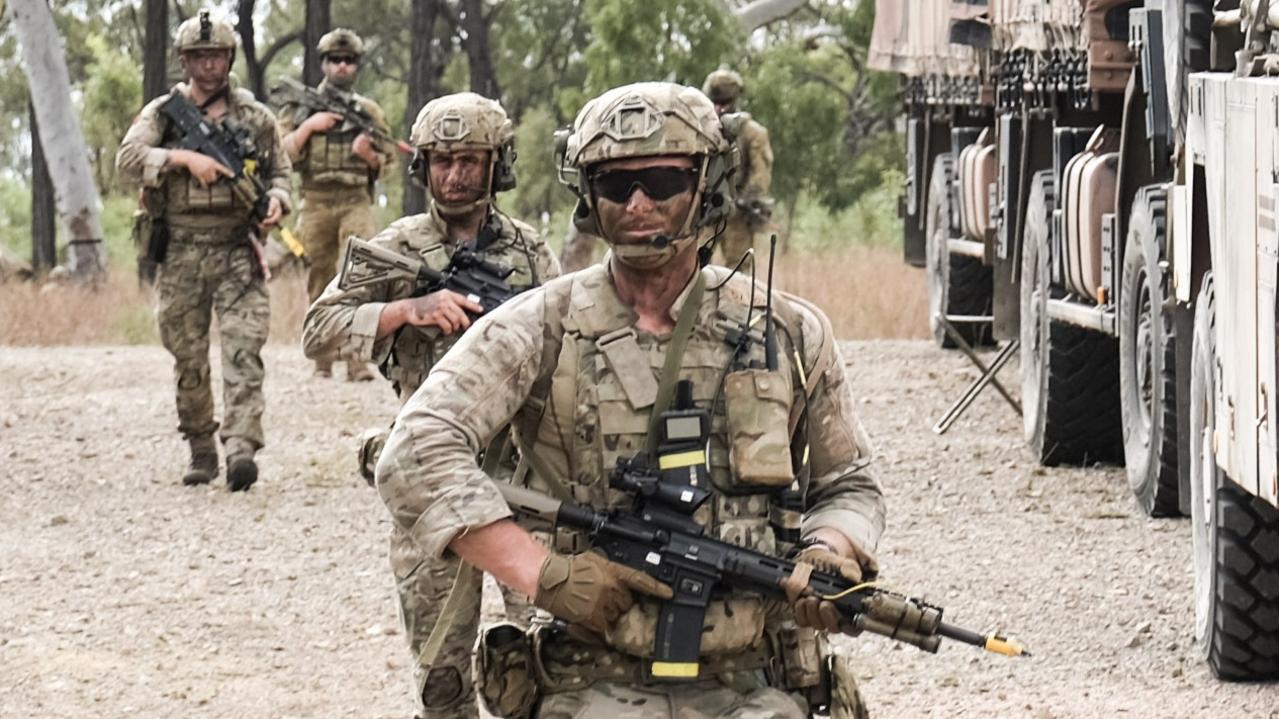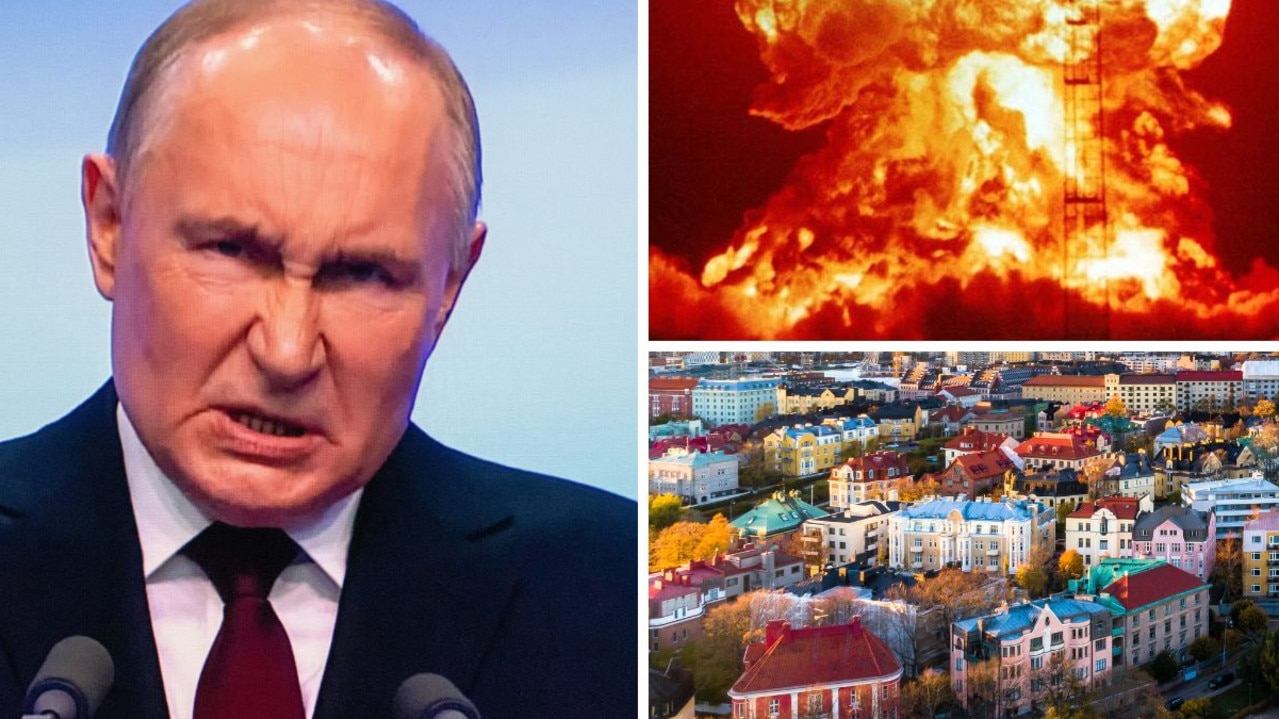Why Black Sea could be new South China sea
A heated encounter between two countries at sea has seen them both declare victory. But who actually won – and what does it all mean?
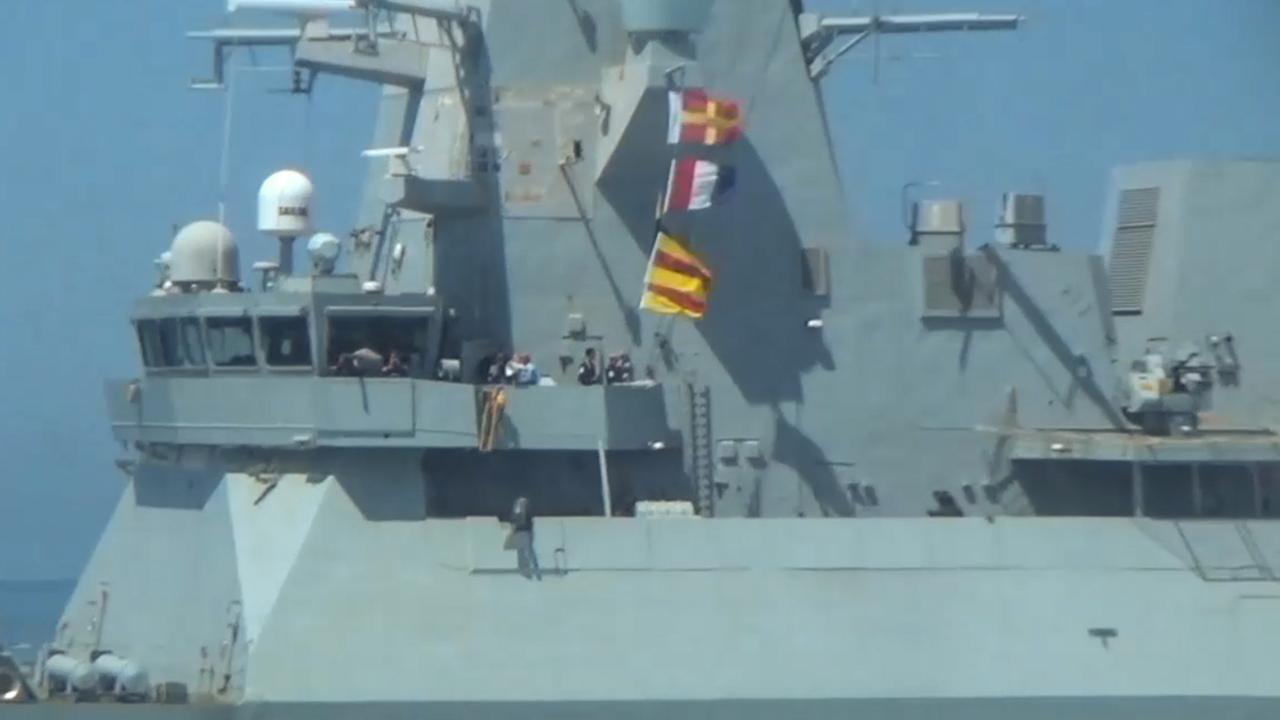
Guns were fired. Bombs exploded. Dozens of combat aircraft screamed overhead. But there’s much more going on in Europe’s Black Sea than Russian attempts to scare off a British warship.
Tensions with President Vladimir Putin’s Russia flared again on Wednesday when the destroyer HMS Defender cut a corner close to the Crimean Peninsula.
An armed Russian Coast Guard vessel challenged the destroyer’s presence. Bombers roared low overhead. Nearby, dozens more cut through the sky, attacking a series of “mock” targets.
Moscow pressed the button first – firing off press releases about how it had “chased out” the 8500-tonne warship after firing warning shots and dropping bombs in its path.
RELATED: America’s new ‘force’ in South China Sea
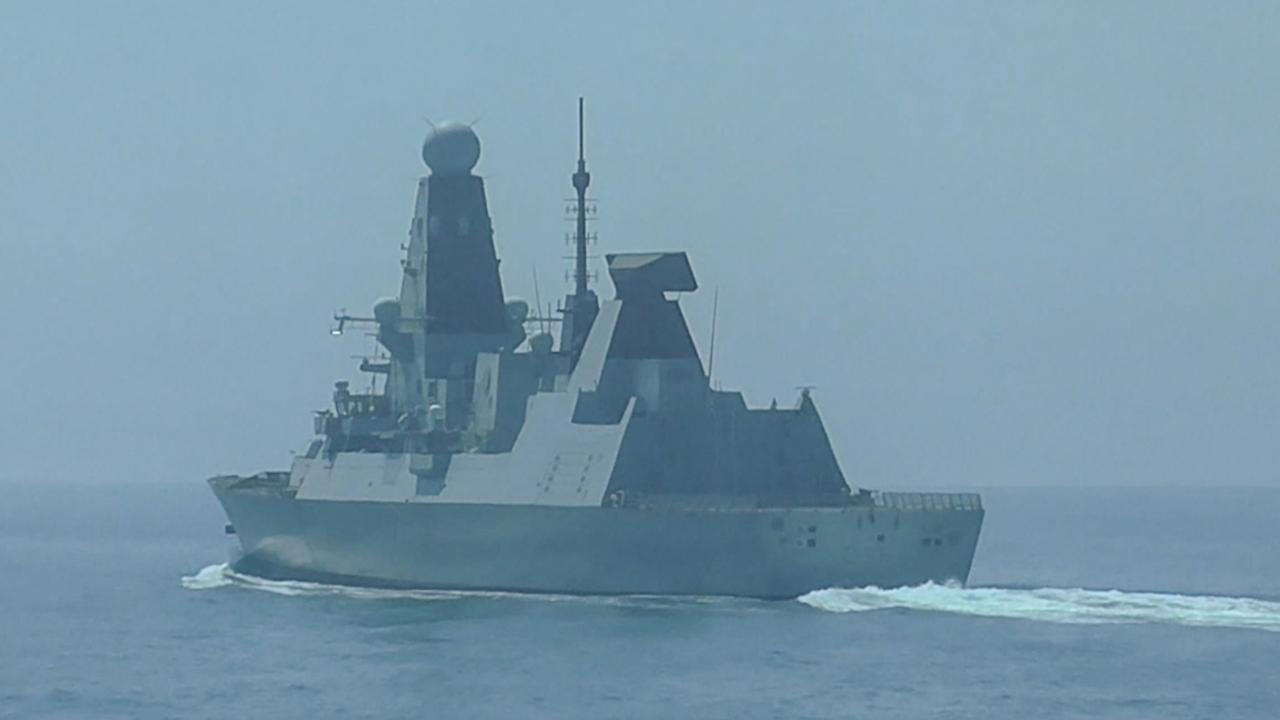
“The destroyer was warned in advance that weapons would be fired in case of a violation of the Russian state border. It disregarded the warning,” a Russian Defence Ministry statement reads.
Footage of Russian Black Sea Fleet and Border Service of the Federal Security Service's prevention of the breach of the Russian Federation state border committed by the UK Navy destroyer «Defender» pic.twitter.com/4VnAlMjK4Y
— Минобороны РоÑÑии (@mod_russia) June 23, 2021
London quickly snapped back: It knew Russia was conducting scheduled “live-fire” exercises in the area. It didn’t care. And nothing came close anyway.
“No shots were directed at HMS Defender, and we do not recognise the claim that bombs were dropped in her path,” the British Ministry of Defence replied.
“We believe the Russians were undertaking a gunnery exercise in the Black Sea and provided the maritime community with prior warning of their activity.”
RELATED: One thing Putin and Xi both fear
As HMS Defender continued on her way, both sides declared victory.
So, who actually won?
“It depends on who you are asking – all parties have benefited,” says Deakin University lecturer in strategic studies Dr Elizabeth Buchanan.
“The Russians bolster their ‘under siege’ mentality, which garners domestic support for more hard line military adventures. The Brits impress naysayers who doubt the resolve of the global Britain agenda.”
Risk and Rewards
“We can call people to respect common sense and international law,” Moscow’s deputy foreign minister Sergei Ryabkov said on Thursday, “but if that doesn’t help, we can bomb not only the path [of a ship], but hit the target.”
Was HMS Defender merely exercising the international right of “innocent passage” in a long-established shipping lane?
Was Moscow attempting to enforce its stranglehold over the northeastern Black Sea?
“It is more about both sides seizing the opportunity to chest beat,” says Dr Buchanan.
“The UK is trying to re-emerge as ‘Global Britain’ (after Brexit), and this was a rather low-cost high-reward signal to send: taking on the Russians.”
But, she says, it was also an opportunity for the Kremlin.
“Moscow gets to underscore its claim to Crimean waters, which sends a strong domestic public relations signal as well.”
It’s not the first time Moscow has claimed a British destroyer had been “chased” away from Crimea.
In October 2020, Russian forces confronted HMS Dragon off the peninsula. In 2018, 17 Russian combat aircraft swooped HMS Duncan.
RELATED: Russia’s threat as China fears grow
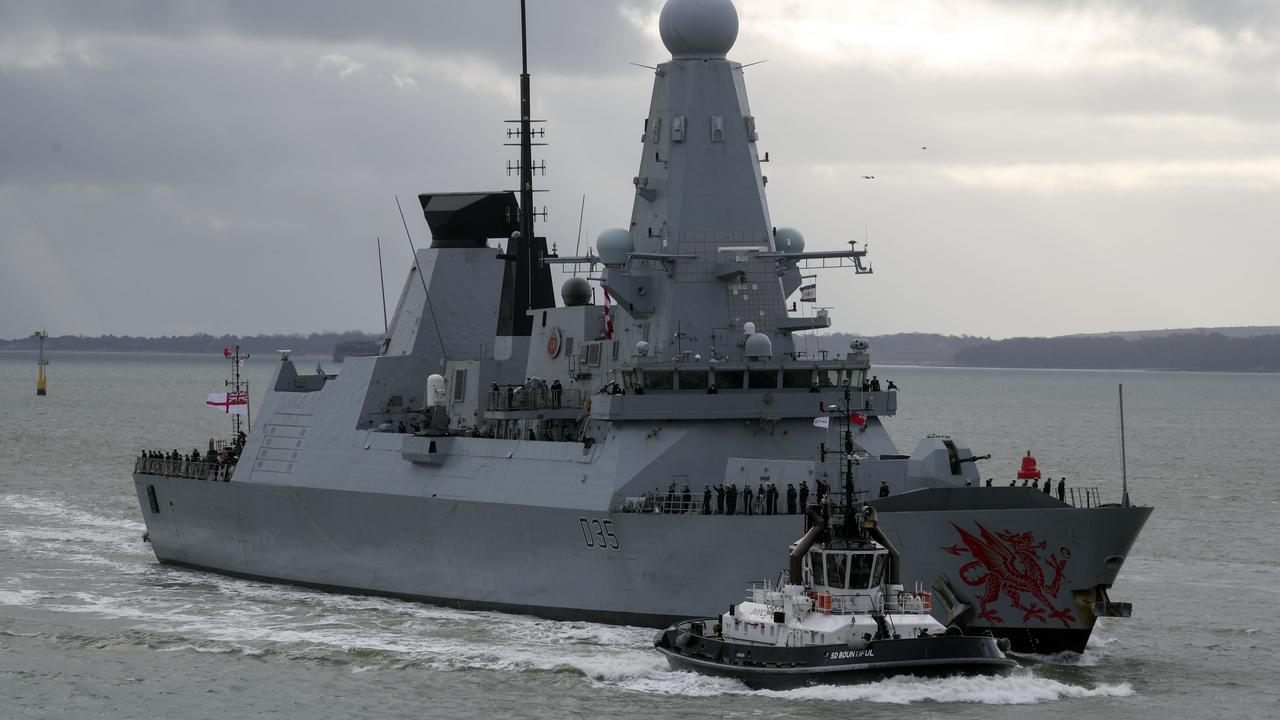
“The fact that the BBC had a reporter on the HMS Defender indicates to me the UK knew the risks, had an intent to upset the Russians but made a calculation that Russia would not escalate beyond warning shots,” Dr Buchanan says.
“It is not in either party’s interest to escalate tensions beyond this event. A confluence of military exercises underway in the region, normative security responses and a Russian coast guard following the checklist has clouded the rather simple fact that two states disagree on the legal status of this waterway.”
It’s all about Moscow asserting ownership of the area.
And Britain denying it.
Gunboat Diplomacy
HMS Defender had just left the Ukrainian port of Odesa, where London had signed a defence agreement on the ship’s deck with the beleaguered Kiev government.
Pushing Moscow’s buttons was to be expected, Dr Buchanan says.
“A quite literal interpretation of gunboat diplomacy in action. But the boldness of Defenders activity is undercut by Britain’s own Twitter campaign which denied any shots were fired or that the incident was an incident at all. It is clear Britain sought to actively demonstrate its support for Ukraine and signal its interpretation of Crimean waters.”
It got what it wanted.
“The territorial integrity of the Russian Federation is inviolable, an absolute imperative,” Ryabkov said.
“We will stand guard over all this by diplomatic and political, and, if necessary, military means.”
The satellite suspected to have captured the incident of Russian Navy driving away the British Navy defender in Crimea waters#OSINT#BlackSeapic.twitter.com/TM0GMAzPNq
— liuming (@lobsterlarryliu) June 23, 2021
But behind the bluster is a deadly scenario.
Moscow is attempting to “choke” Ukraine’s sea lanes. Dr Buchanan says it wants to prevent food and goods from being delivered to Eastern Ukraine to ferment civil unrest.
It’s doing this by declaring six-month-long “war-games” around Crimea and the Kerch Strait entrance to the Sea of Azov. It’s using this to justify preventing Ukrainian and foreign military vessel movements and inspect cargo ships.
In April, Russian Deputy Foreign Minister Sergei Ryabkov said that the ban on foreign naval ships was in line with international agreements, stating that it’s common practice to limit areas where military drills are held.
We believe the Russians were undertaking a gunnery exercise in the Black Sea and provided the maritime community with prior-warning of their activity.
— Ministry of Defence Press Office (@DefenceHQPress) June 23, 2021
No shots were directed at HMS Defender and we do not recognise the claim that bombs were dropped in her path.
It’s one of these “war-games” HMS Defender encountered.
At the heart of the matter is who owns Crimea.
Moscow insists it does.
As does Ukraine.
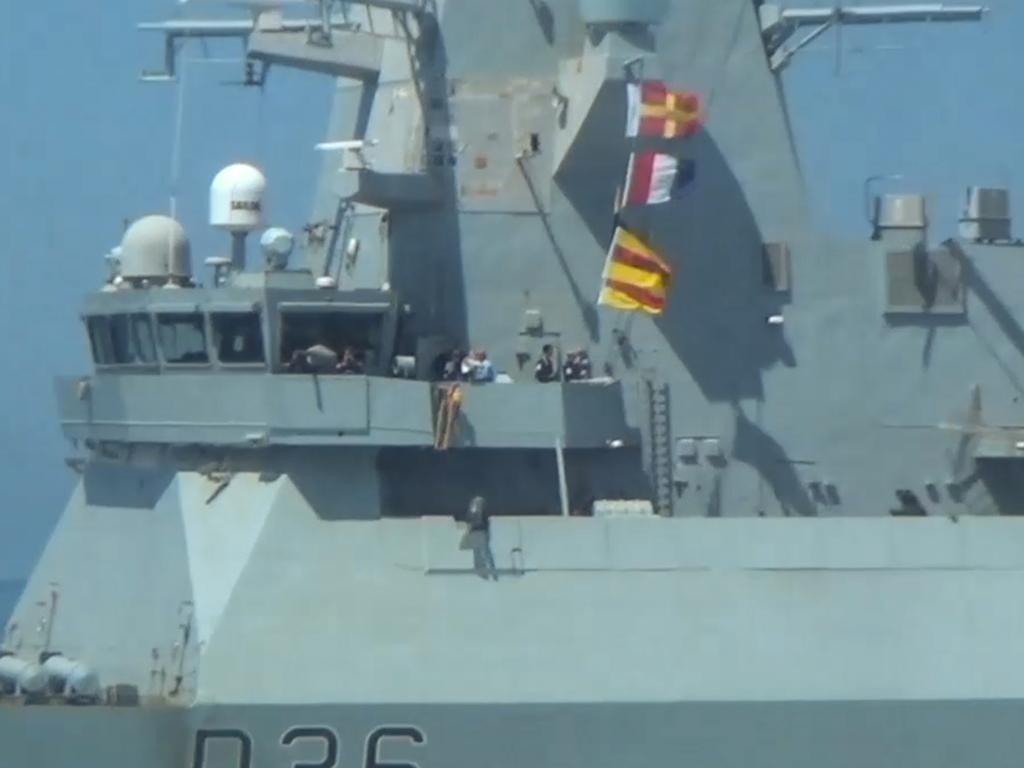
A brief war in 2008 saw Russia occupy roughly 20 per cent of the neighbouring nation of Georgia. That includes nearly half of Georgia’s Black Sea coastline.
It then annexed the Crimean peninsula in 2014, using unbadged troops to seize control of strategic locations. Since then, Moscow’s “unflagged” forces have been fighting alongside Ukrainian separatists to extend its control further.
That struggle continues.
Deception Games
The incident comes amid a swirl of diplomatic activity between Russia, the European Union and the United States.
“In the background of this event is (French President) Macron and (German Chancellor) Merkel calling for EU-Russia dialogue to restart,” Dr Buchanan says.
And that means diplomatic posturing has become particularly important.
“Yes, grey zone activities are the Russian playbook. We’re likely to expect more of this given EU leadership interest in re-engaging with Moscow and the somewhat warmer than expected Biden-Putin relationship as illustrated by the Geneva Summit.”
It’s about the letter of the law.
Or, at least, how vague it usually is in the international arena.
“All international law is about interpretation, and managing perceptions is becoming somewhat of an art form for the Kremlin,” Dr Buchanan says.
And perceptions can be manipulated. As can digital tracking devices.
Positions of Two NATO Ships Were Falsified Near Russian Black Sea Naval Base - USNI Newshttps://t.co/t0V4dr0y6ipic.twitter.com/zwJxX6zufX
— USNI News (@USNINews) June 21, 2021
In the lead-up to the incident, HMS Defender and the then accompanying Dutch warship HNLMS Evertsen had their location transponders “spoofed” to show them docked inside the Crimean port Sevastopol. They were actually in Ukraine’s Odesa.
Shortly after Wednesday’s standoff, the Automatic Identification System was “spoofed” once again – this time teleporting HMS Defender to Bahrain in the Persian Gulf.
Dr Buchanan says it’s just the latest example of vessel locations being altered to attract attention, and “perhaps a subtle warning of the ability for Russian actors to be able to manipulate a bit more than just the AIS systems of foreign military vessels, too.”
Moscow’s ‘Nine-Dash Line’
The dispute over who owns what portions of the Black Sea echo the growing international crisis in the East and South China Seas.
Both Moscow and Beijing have moved in on territory not belonging to them.
Both Moscow and Beijing seek to deny these regions to the militaries of other nations.
But Dr Buchanan says the strategic situations are very different.
“China wants to control and close off its seas. Russia needs to control the Sea of Azov, but not close it off,” she says.
Because Turkey controls the choke-point Dardanelles and NATO the Mediterranean, Moscow must walk a fine diplomatic line. Just as Beijing’s artificial island fortresses give it effective control over the South China Sea, Russia’s sea denial strategy around the Crimean Peninsula also affords increased control within the Black Sea.
“If Crimea is Russian territory, then the Russian argument becomes legitimate under international law,” Dr Buchanan says.
“Interpretations of international law are extremely nuanced and will increasingly be used in the grey zone conflict for international security.”
The West, she says, faces a difficult choice.
Which fight should it pick?
“With Chinese power showing no clear limits, it becomes a bit of a case for the West of better the devil you know. The worst-case scenario is a Sino-Russian bloc to contend with.”
Which is why the “West will likely push to hose down any further escalation related to this incident, or indeed fan the story further,” she says.
“At least Western leaders can acknowledge the pragmatic interests of Putin’s Russia, which seeks relevance on the global stage. Putin’s ambition is largely a ‘challenge’ which can be managed – whereas the bounds (and potential) of Xi Jinping’s plans for China are not.”
Jamie Seidel is a freelance writer | @JamieSeidel


